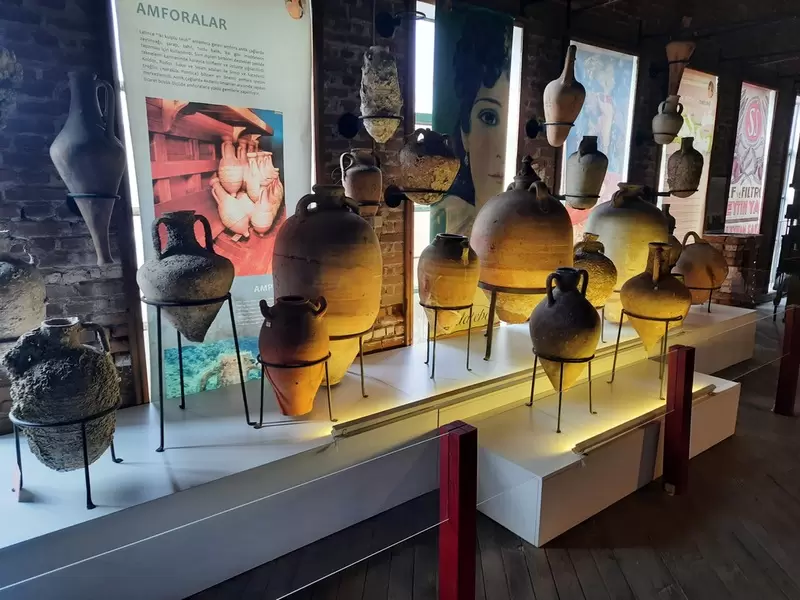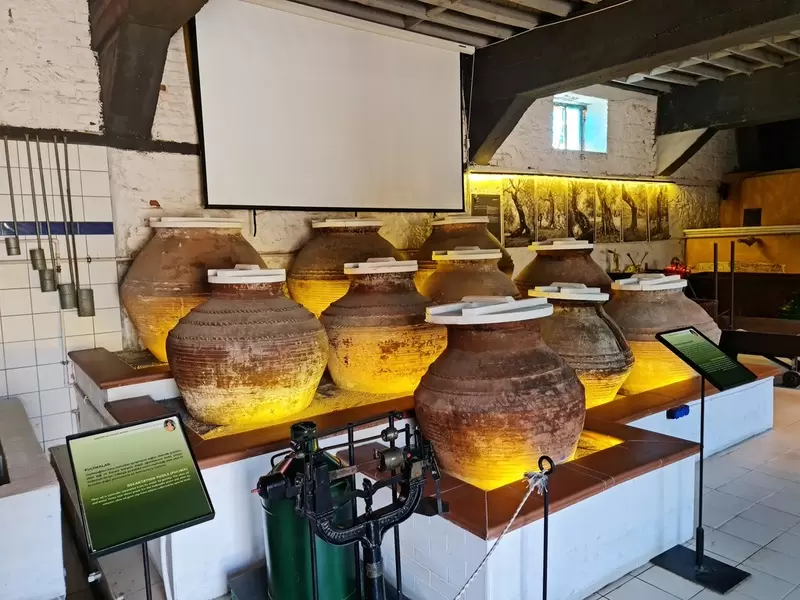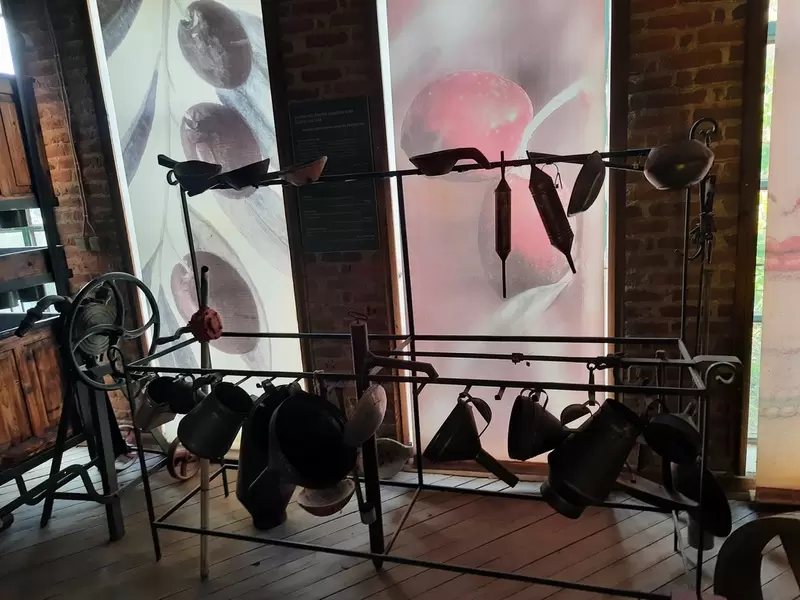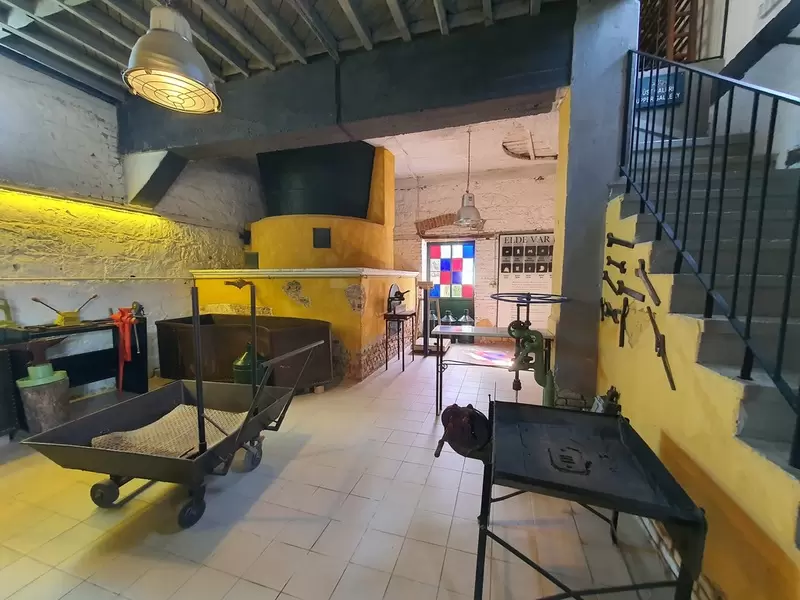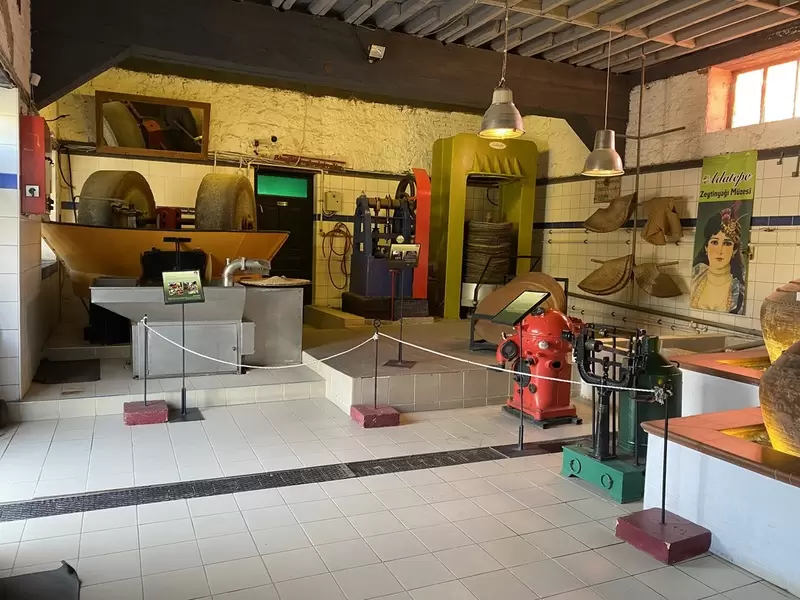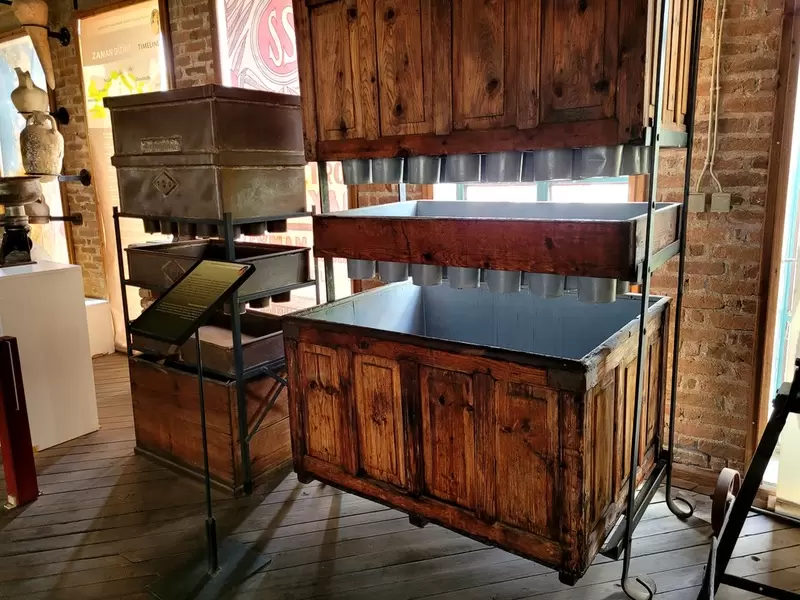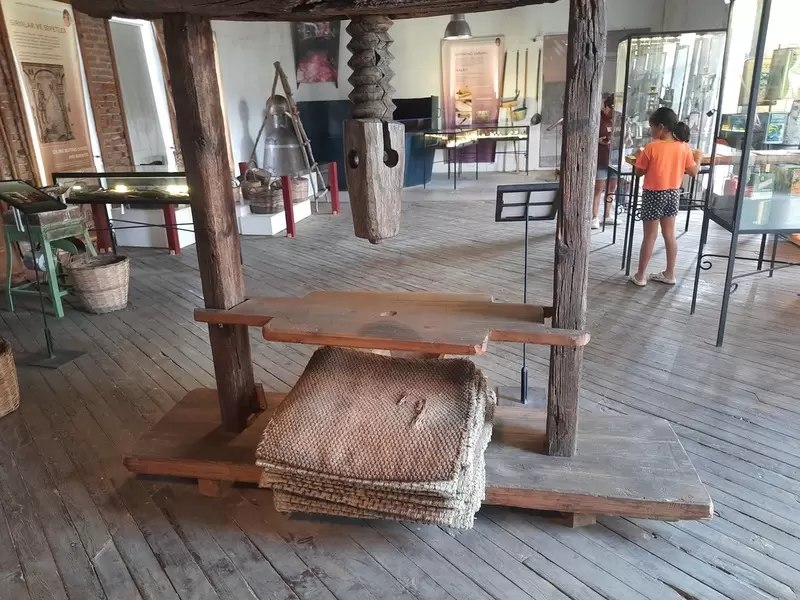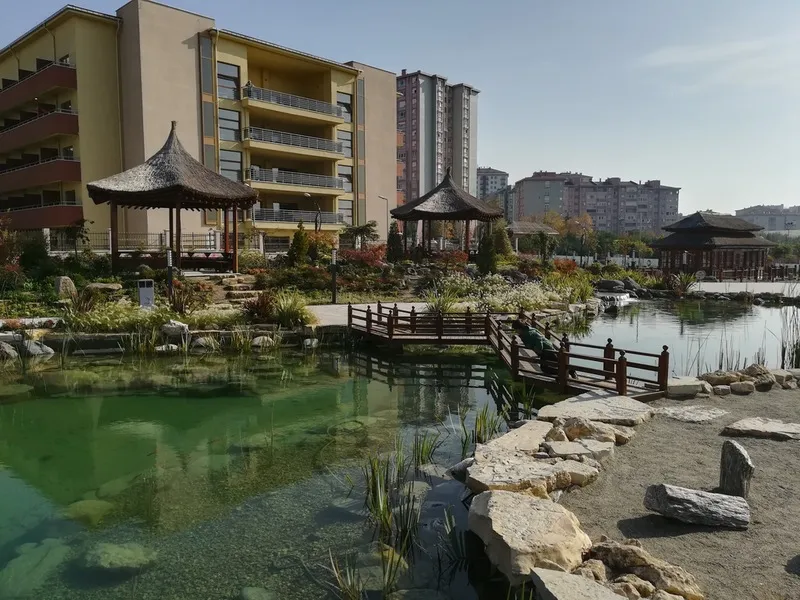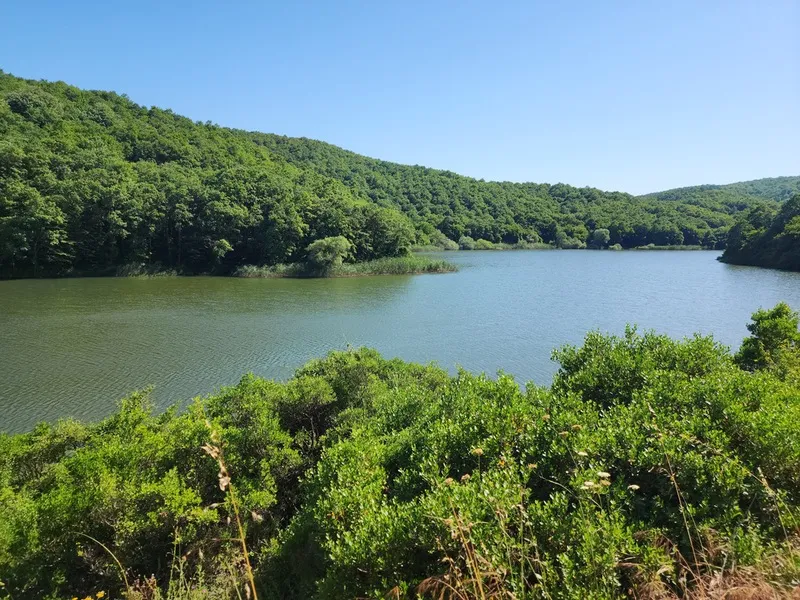
Adatepe Olive Oil Museum (Turkish: Adatepe Zeytinyağı Müzesi) is a museum in Adatepe, Turkey, dedicated to the history and production of olive oil. The museum is located in a 19th century olive oil press house, which was restored in 2001. The museum has a collection of over 1,000 objects, including olive oil presses, tools, and equipment. The museum also has a library, a research center, and a gift shop.
The Adatepe Olive Oil Museum, also known as Adatepe Zeytinyağı Müzesi in Turkish, is a museum located in the village of Adatepe, in the Çanakkale Province of Turkey. Here is some information about the Adatepe Olive Oil Museum:
1. Overview: The Adatepe Olive Oil Museum is dedicated to showcasing the history, culture, and production process of olive oil in the region. The museum provides insights into the significance of olive oil in the local economy, traditions, and daily life.
2. Location: The museum is situated in the village of Adatepe, which is known for its olive groves and olive oil production. Adatepe is located in the Kaz Mountains (also known as Mount Ida), near the town of Küçükkuyu in Çanakkale Province, Turkey.
3. Exhibits: The museum displays a variety of exhibits related to olive oil production, including historical artifacts, tools, and equipment used in the traditional olive oil-making process. The exhibits may include old olive presses, stone mills, containers, and other implements associated with olive oil extraction.
4. Olive Oil Production Process: Visitors to the museum can learn about the steps involved in olive oil production. The exhibits may demonstrate the cultivation of olive trees, harvesting techniques, and the process of extracting and processing olives to obtain high-quality olive oil. The museum aims to educate visitors about the traditional methods as well as modern olive oil production practices.
5. Cultural Significance: The Adatepe Olive Oil Museum highlights the cultural importance of olive oil in the region. Olive oil has been a fundamental part of Mediterranean cuisine and local traditions for centuries. The museum may provide information about the historical and cultural significance of olive oil and its role in the local economy.
6. Tastings and Workshops: The museum may offer olive oil tastings, allowing visitors to sample different varieties of olive oil and learn about their unique characteristics. Additionally, the museum might organize workshops or demonstrations related to olive oil production, cooking with olive oil, or olive oil-based products.
7. Visiting the Adatepe Olive Oil Museum: If you plan to visit the Adatepe Olive Oil Museum, it is advisable to check the museum's opening hours, admission fees, and any specific guidelines for visitors. You can contact the museum directly or refer to their official website for the most accurate and up-to-date information.
Please note that specific details about the museum's exhibits and programs may vary. It is always recommended to verify the information before planning your visit to the Adatepe Olive Oil Museum.
